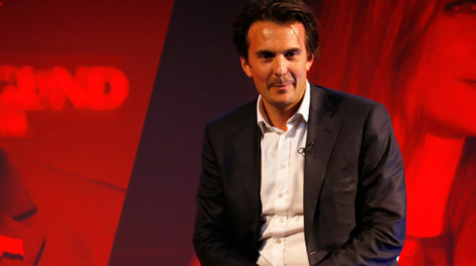19th December 2023
French media company Vivendi’s announcement that it’s exploring a sale of Havas—as well as sister company Canal+ Group and stakes in publisher Lagardère and Telecom Italia—could unlock more value for the agency, making it attractive to potential buyers, sources tell Adweek.
The potential sale follows the partial sale of record label Universal Music Group (UMG) in 2020, when 10% was acquired by a consortium led by Chinese media company Tencent. Since the listing of UMG, Vivendi has seen a substantially reduced valuation, meaning growth for its subsidiary companies has been limited.
“In 2020, Havas was a mere 15% of Vivendi’s revenues, with UMG and Canal+ dominating the numbers and holding center stage,” said Green Square partner Barry Dudley. “When Universal was spun out in 2021, Havas shifted toward the limelight at just under 30% of revenues. If the next step is a stock exchange listing all to itself, Havas will suddenly be putting on its own show.”
In the six years since Vivendi acquired the remaining 59.2% stake in the advertising agency held by the Bolloré Group, the ad industry has gone through a fairly tumultuous period of change, as client demand for digital transformation strategies and the advancement of artificial intelligence have disrupted the commercial creative sector.
Unlocking value for future owners
Havas is the fifth-largest communications agency network globally and has been led by chairman and chief executive Yannick Bolloré for the last decade. He also serves as chairman of the board at Vivendi.
“If it is to unlock the additional value that is being held back within Vivendi, it is going to need to be quickly communicating a very clear and purposeful strategy,” Dudley explained.
Adweek understands that on Friday, a meeting was held with leadership within Havas to reassure them over concerns that arose from the surprise company announcement.
Further speculation has indicated that Havas could become a takeover target to merge with a rival agency network group, or potentially a consultancy such as Deloitte or Accenture looking to improve its creative and media credentials.
According to Vivendi’s third-quarter results, released in October, Havas’ net revenue was $714 million (654 million euros), with organic growth year-over-year of 4.5%. That followed second-quarter organic growth of 6.3%.
“[Havas] is also a relatively unprofitable, complicated and unwieldy part of the group. They are undersize in the U.S. and in media,” said one former Havas executive who requested anonymity. “And, despite what the release says, they have been very reluctant to make big acquisitions—Havas and [Vivendi] will never get scale without that.”
Ownership, acquisitions and agency structure
It is thought that even with going public, the Bolloré family would continue to run the businesses outside of Vivendi’s direct ownership.
Dudley explained that the agency network’s media business is its main revenue driver, despite Havas owning 148 agencies worldwide, including agency network BETC. These are based across its 73 “villages.”
This could lead to Havas following the WPP strategy of consolidating agencies to simplify the structure for clients.
Former Dentsu International and WPP executive Euan Jarvie, who now acts as chairman, investor and adviser for companies, believes that the major holding companies still have transformational challenges in their structures with the rise of consultancies entering the ad market, making driving scale even tougher.
“The next few years will [see] a rise of more indies and much more of a struggle for large corporates in and outside the ad market,” Jarvie said. “There is still lots of money in the markets for equity of capital investors to get into this space.
“All industries disrupt themselves generationally or evolutionary from time to time,” Jarvie added. “Advertising is doing both, so now might be a great time for Vivendi to consolidate and get value back in from some of its assets.”
Dudley added that the business will already be looking for its next high-profile acquisition deal following that of creative agency Uncommon earlier this year, with an eye on either Asia or the Americas.
“One thing is for sure: Doing deals is going to be fundamental in the mid-term,” Dudley said.
